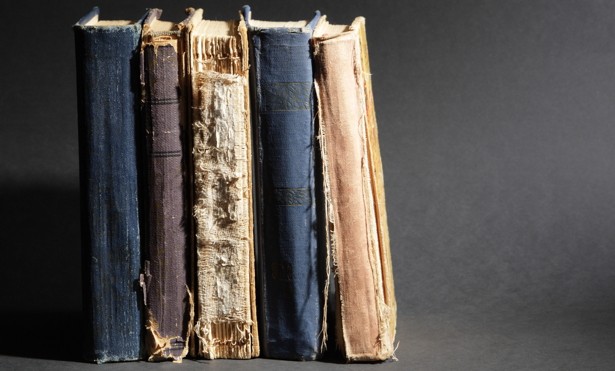
Forms of free verse and prose poem are borne out of minimising the role, influence and power of literary tradition

Charles Baudelaire, French poet and pioneer of prose poem, in the mid 19th century, defined a healthy person as one who can go without food for two days but not without poetry. This means, at least ideally, that for a cultivated healthy person, hunger for love, beauty, insight and delight that poetry claims to offer to its readers is stronger than hunger for food. Interestingly, the most distinguished contemporary Urdu poet of prose poem, Afzal Ahmed Syed, says a similar thing by stating that only poetry can reveal us onto life.
[Life could have never come to know for what we had our hearts set on it, if we didn’t sing songs.]These words seem a bit bizarre today. Why? Simply because we have been metamorphosed into consuming animals. We seem conditioned to consume all kinds of stuff available at super stores and on social media. Poetry was not made to be consumed; it was to be lived. It was not just a way of life, rather a kind of life immersed in Noor (light), Musarrat (delight) and Baseerat (insight). This kind of life seems to have gone away.
We are living a highly prosaic life. We know a lot, have a lot, that keeps exceeding our need, exceedingly sharpening our rational faculties and surpassing even our imaginative space. But we find ourselves unable to live that all. Poetic stuff has become prosaic, too. Not surprisingly, prose poem has grown to be the most popular mode of poetry.
Read also: Slam a poem
Except a few seasoned poets, every contemporary Urdu poet has tried his or her hand at prose poem. A multitude of poets have brought collections of prose poems. But the popularity of anything doesn’t guarantee its quality. There are, undoubtedly, some good poets of prose poem but not a single one to be termed an equivalent of the likes of Rashid, Faiz, Majeed Amjad and Meeraji, poets of free verse.
A cursory look on the trajectory of poetry can reveal that prose poem points to the ultimate extremity of breaking away from set forms, norms and standards of poetry or tradition, ostensibly in the name of freedom of true, unfettered poetic expression. Though Ghalib said that ‘’ Scope of ghazal is too limited to cater to the needs of my expression. I desire some vaster medium,
it was Hali who identified Qafia (rhyme) as a major hindrance in the way of free expression of poet of ghazal. This, along with other colonial reforms of education and literature initiating translations of European poems for Urdu textbooks, paved way for blank verse, a form of poetry without rhyme.
Though un-rhyming, it has consistent meter (in English it is written with ten syllables in each line), which caused modern poets to embrace free verse. Free verse is written in inconsistent meter, meaning a kind of restraint is still there to be observed. And right here, prose poem appears to do away with the last restraint, which is meter.
Poets of ghazal, nazm-e-ma’ra (blank verse), azad nazm (free verse) and nasri nazm (prose poem) might be seen as coexisting but perpetually engaged in a ‘clash of poetics’. In contemporary Urdu world on one side we see the likes of Zafar Iqbal, Iftikhar Arif, Anwar Shaoor, Sahar Ansari, Aslam Ansari, Khursheed Rizvi, Abbas Tabish, Shaheen Abbas, Inam Nadeem, writing ghazal and on other side there are Afzal Ahmed Syed, Kishwar Naheed, Ali Mummad Farshi, Naseer Ahmad Nasir, Azra Abbas, Tanvir Anjum, Abrar Ahmad, Yameen, who write azad and nasri nazm. There are also some poets who write ghazal, azad nazm and nasri nazm alike.
Except prose poem, no other literary genre has to unendingly confront a question, a kind of ontological one, of on what ground it claims to be a genre of poetry. A number of arguments have to be built around by prose poem writers to legitimise their claim that what they write is poetry. Their central argument, borrowed from Aristotle’s Poetics and from Hali who vaguely repeated it in Muqadima, has been that meter doesn’t form an essential part of poetry. (Ironically, Hali himself composed poetry in meter following strict rules of classical prosody.) By excluding meter, room was created for imposing images, chanting metaphors and ironic lines was created. What might be called best in prose poem comes from its images or metaphors or from its ironies, satires and blunt expressions.
New forms of poetry emerge as a response to or reflection of social and cultural changes. Specific cultural change is reflected or, in a few cases, incarnated in a new literary form.
Neo-liberal economic and social conditions are essentially created by minimising the role and control of central state powers. By transcending national borders, globalisation ensures flow of goods, things, and ideas too across the globe. Philosophically decentralism and culturally pluralism have become ‘central’ ingredients of contemporary worldview of the people in general.
Interestingly, forms of free verse and prose poem are borne out of minimising the role, influence and power of literary tradition. Though literary tradition is multifaceted, possessing a worldview or content, its permanence resides in form instead. So, it is not surprising that modern poet first rebelled against form. Prose poem, particularly, doesn’t follow any specific formal features. It can even be composed like prose, in paragraph rather than verse. Specificity of form, if there can be any, evolves out of its content.
Being structurally homologous with social-economic-cultural conditions doesn’t mean that prose poetry shares and propagates the same ideology, which is held by neo-liberalism. At least Urdu prose poem seems to have adopted an oppositional role to the exploitive, de-humanising ideology of neo-liberalism. One of the brilliant poets of prose poem, Ali Muhammad Farshi, in following prose poem satirically depicts the characteristics of consuming animals: